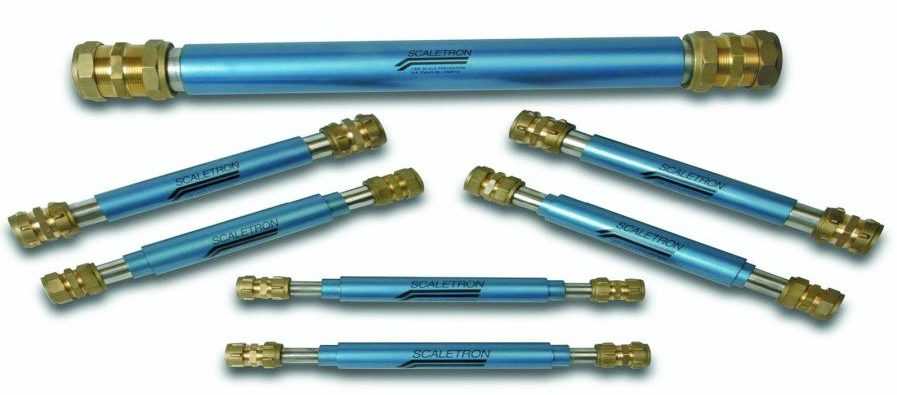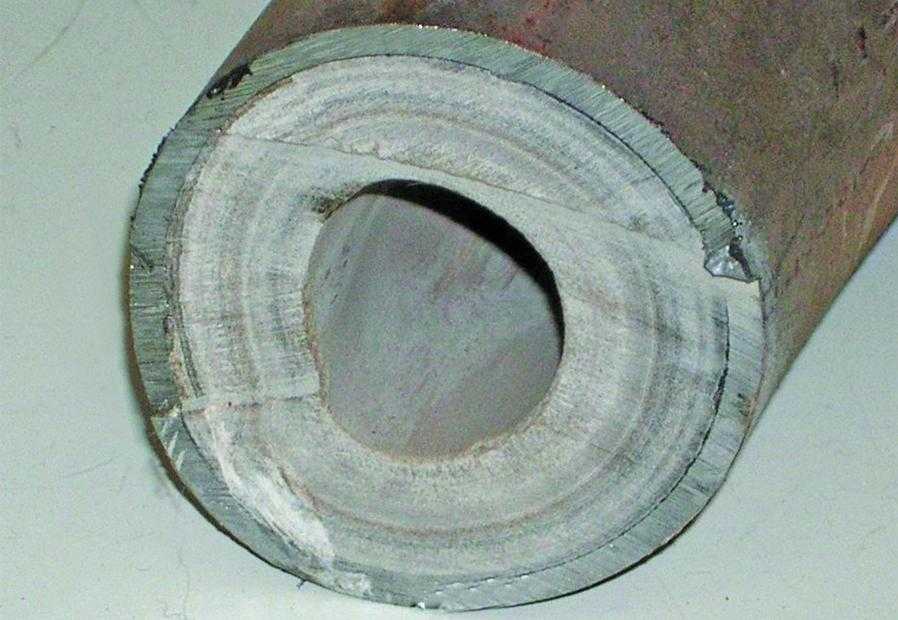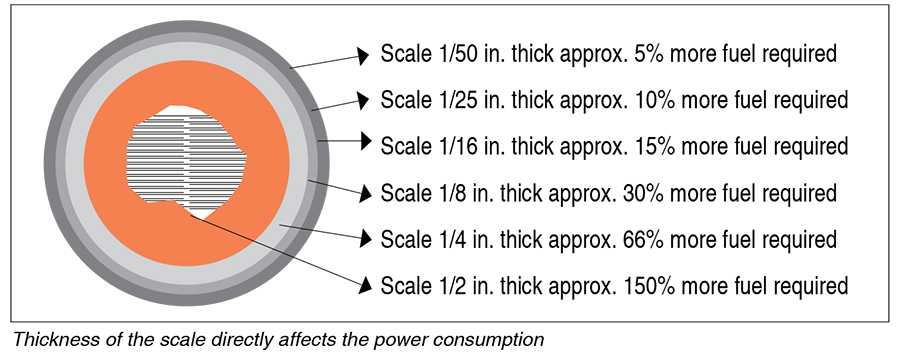
Energy conservation in garment factories is drawing a lot of attention from the manufacturers these days and one such area where there is scope for reducing power consumption, yet left unnoticed by the manufacturers, is boilers. Due to scaling, which occurs because of hard water, the boilers start consuming extra power for producing a certain amount of steam, their maintenance costs shoot-up and even their lifespan is drastically shortened. Team StitchWorld finds out the possible solutions for tackling the problem of scaling and discusses the best possible technique along with the details of the problem.
Hard water inadvertently leads to scaling over a passage of time which severely affects the efficient and proper working of boilers. Scaling refers to precipitated salts present in hard water which are deposited on the surface. This precipitate accumulates to form scales of salts such as calcium, magnesium, silica, aluminium, iron and sodium. Compared to other chemical reactions, the crystallisation of these scales is a very slow process, due to which the scales formed are hard and dense in nature, and are resistant to mechanical and chemical removal.

Scaling occurs in the heat transfer portion of boilers, which leads to excess fuel consumption and overheating of the boiler tube, resulting in its failure. Since these scales also have a high degree of heat insulation, as the thickness of the scale layer increases, the boiler’s efficiency starts decreasing. A 1/8″ thick scale can result in 20-25 per cent loss in efficiency. And in order to get rid of these scales formed inside the boiler, the manufacturers install RO plants for maintaining water quality, use mechanical and chemical cleaning methods, which not only cost a lot of money, but also increase the downtime of the boiler and damage the surface of the boiler tube, due to chemical and mechanical reactions. Despite such efforts, it has been noticed that silica and hardness from raw water does not get removed completely and gets carried to the boiler and precipitates in boiler drum, forming hard scales. Moreover these processes of water softening make the water acidic, which further leads to corrosion of the boiler tube. These solutions can work up to a maximum hardness level of 600 ppm and require regular maintenance as the chemicals have to be replenished after regular intervals. Moreover, the disposal of untreated brine water in these solutions causes chemical pollution.
Solutions Available

Now few companies like the Delhi-based Inteco Colloids which offers Scaletron, Jaipur-based Sanwariya Green Technologies which offers Scalepro, and Indorebased Scale-ban Equipments provide anti-scaling equipment that neither require high maintenance costs nor cause any water pollution. These equipments are in the form of a pipe, which are fitted on the boiler feed-water discharge pipe and have a specially designed metallic trapezoidal core installed inside them, which is impregnated by different metals in increasing order of electro-negativity. Based on the galvanic principles, when the boiler water flows through it, the core gets negatively charged and thus arrests positively charged H+ ions resulting in the increase of OH-ions which eventually increased the pH level. Higher pH level results in precipitation of very fine particles of calcium and magnesium carbonates in the form of Aragonite crystal structure which remains in colloidal form and does not precipitate instead of calcite crystal structure which precipitate and lead to scaling.
Popular manufacturers like Ramsons provide steam generators with portable water softening units to prevent scaling inside the boilers, but their water softening units have a limitation. The recommended feed water hardness for such systems is less than 5 ppm and such systems can reduce the hardness to 2-3 ppm. Also, these solutions are not recommended for smaller boilers that are usually used in garment factories, but only for boilers with capacity of 50-100 kg of water. On the other hand, the anti-scaling solutions that are being discussed here, work on a totally different principle, as they do not bring down the hardness level, rather just convert the hardness creating compounds into colloidal form which prevents scaling to occur on the heat exchange areas of the boiler. These solutions do not even limit the hardness level of the feed water as it does not matter while converting the hardness-causing compounds to colloidal form.
Additionally, the presence of calcium salts in colloidal state forms a protective film on the pipe which helps in reducing corrosion. These solutions require intermittent blow down at the interval of 3 hours instead of once per shift of 8 hours, as practiced normally, so that all scale forming hardness is removed. Solutions offered by Inteco Colloids and Scale-ban equipments do not require electricity to run, but Scalepro offered by Sanwariya Green Technologies consumes minimal electricity amounting to 4-5 units per month. “Once fitted, these solutions do not call for any maintenance, as they have no moving parts, and last up to 20-25 years without any glitch,” informs Naresh Mendiratta of Inteco Colloids. These equipments do not require any sort of replenishment as there are no chemicals involved, nor does it require any sort of energy input. There are no other costs involved other than the cost of the equipment, which costs Rs. 7,500 (US $ 115) for a ½” pipe, Rs. 10,250 (US $ 157) for ¾” pipe, and Rs. 11,700 (US $ 180) for a 1″ pipe and it can be fitted easily by any plumber. Though there are replacement-warranties offered by the manufacturers, these aren’t claimed as the equipment is said to work flawlessly with zero maintenance requirement.

Post a Comment